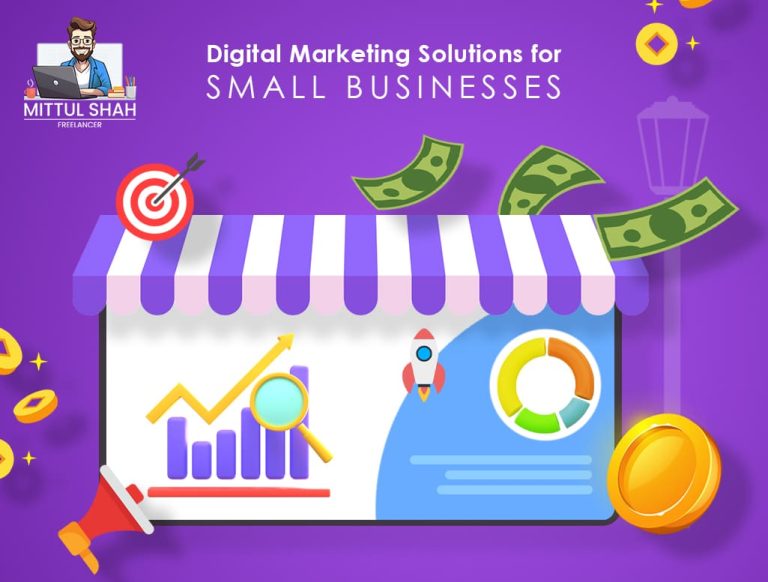In today’s competitive landscape, small businesses must leverage digital marketing to thrive. Implementing effective online strategies can significantly enhance your brand’s visibility, attract targeted audiences, and drive growth.
1. Develop a User-Friendly Website
Your website serves as the digital storefront of your business. Ensure it is:
- Responsive: Optimized for all devices, including smartphones and tablets.
- Fast-Loading: Quick load times to reduce bounce rates.
- Informative: Clear information about your products or services.
A well-designed website not only attracts visitors but also converts them into customers.
2. Optimize for Search Engines (SEO)
Search Engine Optimization (SEO) is crucial for improving your website’s visibility on search engines like Google. Focus on:
- Keyword Research: Identify and incorporate relevant keywords that your target audience is searching for.
- On-Page SEO: Optimize meta titles, descriptions, headers, and content with targeted keywords.
- Local SEO: Enhance your presence in local search results by creating and optimizing your Google My Business profile.
Effective SEO strategies can drive organic traffic to your site, leading to increased leads and sales.
3. Leverage Social Media Platforms
Social media is a powerful tool for engaging with your audience and promoting your brand.
- Platform Selection: Choose platforms that align with your target audience demographics.
- Consistent Posting: Regularly share valuable content, including promotions, updates, and industry insights.
- Engagement: Respond promptly to comments and messages to build relationships and trust.
Active social media presence can enhance brand loyalty and attract new customers.
4. Invest in Pay-Per-Click (PPC) Advertising
PPC advertising allows you to reach potential customers quickly.
- Targeted Ads: Create ads that target specific demographics, locations, and interests.
- Budget Management: Set clear budgets to control spending and maximize ROI.
- Performance Tracking: Monitor ad performance and adjust strategies as needed.
Platforms like Google Ads and social media ads can drive immediate traffic to your website.
5. Utilize Email Marketing
Email marketing is an effective way to nurture relationships with existing and potential customers.
- Build a Subscriber List: Encourage website visitors to subscribe to your newsletter.
- Personalized Content: Send tailored emails based on subscriber interests and behaviors.
- Regular Updates: Share news, promotions, and valuable content to keep your audience engaged.
Consistent email communication can lead to increased customer retention and sales.
6. Create Valuable Content
Content marketing involves producing relevant and valuable content to attract and engage your target audience.
- Blog Posts: Share insights, tips, and industry news related to your business.
- Videos: Create engaging videos demonstrating your products or services.
- Infographics: Use visual content to explain complex information clearly.
High-quality content establishes your authority in the industry and improves SEO rankings.
7. Monitor and Analyze Performance
Regularly analyzing your digital marketing efforts helps identify what’s working and what needs improvement.
- Use Analytics Tools: Utilize tools like Google Analytics to track website traffic and user behavior.
- Set Key Performance Indicators (KPIs): Define metrics to measure the success of your strategies.
- Adjust Strategies Accordingly: Make data-driven decisions to optimize your marketing efforts.
Continuous monitoring ensures your strategies remain effective and aligned with your business goals.
Implementing these digital marketing solutions can significantly impact the growth and success of small businesses. By focusing on building a strong online presence, engaging with your audience, and continuously optimizing your strategies, you can stay competitive in today’s digital marketplace.

